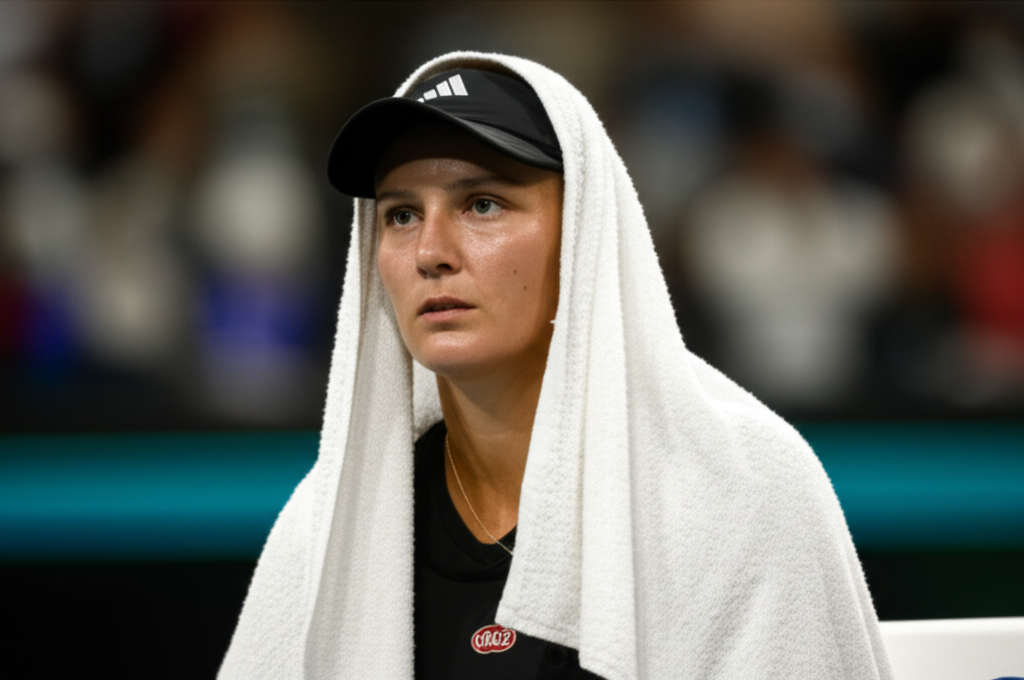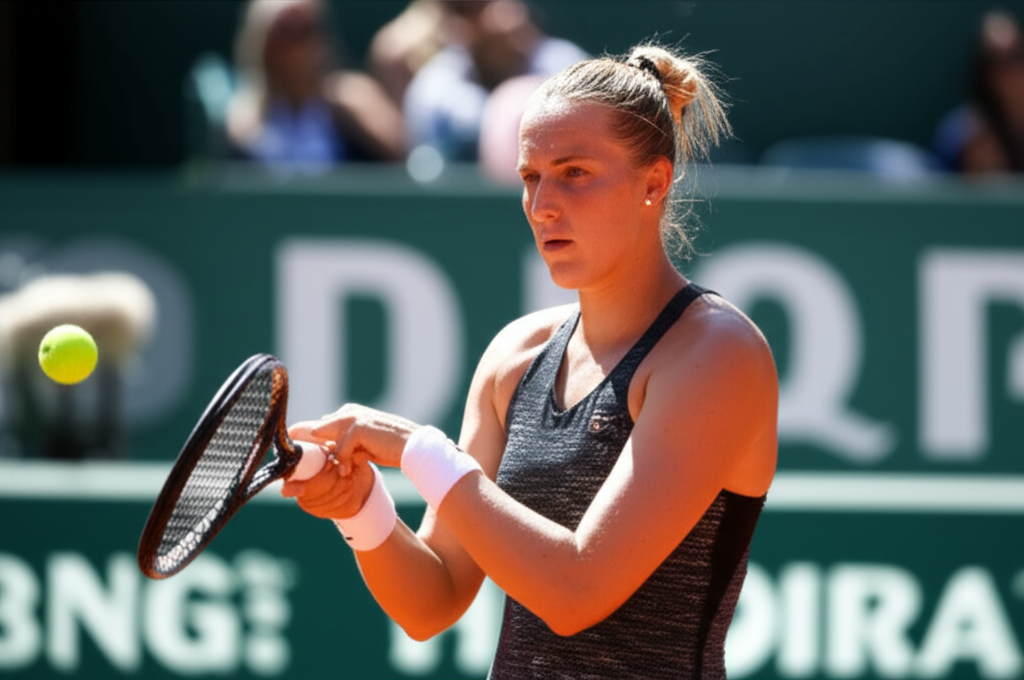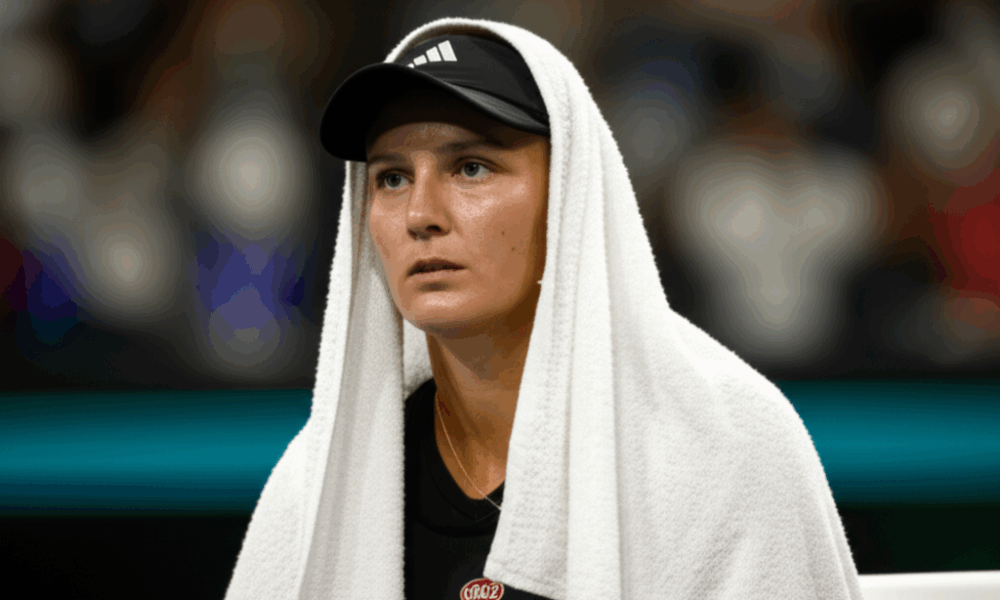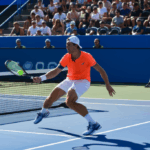Tennis superstar Aryna Sabalenka has opened up about the profound mental and emotional challenges she faces at Grand Slams, describing the internal struggle as “not easy to handle.” The reigning US Open champion revealed that mastering her emotions and accepting self-doubt have been crucial to her recent successes, including her fourth major title.
Sabalenka’s candid admissions shed light on the immense pressure faced by elite athletes, particularly in the high-stakes environment of major tournaments. Her journey highlights a significant shift in her approach to mental fortitude, moving from external reliance to internal responsibility.

The Weight of Expectation and Emotional Volatility
For much of her career, and particularly in the 2025 season leading up to her US Open triumph, Sabalenka publicly grappled with what she termed “emotional volatility” during crucial Grand Slam matches. Despite consistent performances that saw her reach multiple major finals, the final hurdle often proved elusive due to internal pressures.
In 2025 alone, Sabalenka reached the finals of the Australian Open, losing to Madison Keys, and the French Open, where she was defeated by Coco Gauff. These losses, along with a semi-final exit at Wimbledon against Amanda Anisimova, were formative experiences. She admitted that in these moments, her emotions often took control, leading to “self-destruction” and a lack of self-trust.
“I was just thinking that why would I let my emotions to take control over me in those two finals?” Sabalenka reflected, indicating a turning point in her mindset. The consistent pattern of falling short in big moments prompted her to re-evaluate her mental game.

Sabalenka’s New Mental Approach and Self-Responsibility
Following her disappointing run in the early 2025 Grand Slams, Sabalenka embarked on a deliberate journey to conquer her inner demons. She decided to “sit back and to look at those finals and to maybe learn something,” rather than simply trying to forget the setbacks.
A key aspect of her new strategy involved taking personal responsibility for her emotional state. She revealed that she stopped relying heavily on a psychologist, finding that she was “expecting her to fix my problems” rather than developing her own coping mechanisms. This pivotal decision allowed her to learn more about herself and gain better control over her emotions, leading to a more balanced approach on court.
“I decided for myself that I’m going to control my emotions. I will not let them take control over me,” she stated, emphasizing her determination to maintain composure regardless of match circumstances. This mindset proved crucial in her successful defense of the US Open title.
The Power of Acceptance and External Influences
Sabalenka also shared that a self-help book, “Into the Magic Shop” by neurosurgeon James Doty, significantly influenced her perspective, helping her to “stay focused and to focus on the right things on important points.” This reading, undertaken during a holiday, provided her with a “lightbulb moment” to understand and manage her emotions more effectively.
Furthermore, the addition of former doubles world No. 1 Max Mirnyi to her team has reinforced the idea that “there’s no such thing as a perfect tennis match.” This perspective encourages acceptance of imperfections and a calmer search for solutions during matches.

Overcoming Past Struggles and Future Outlook
This isn’t the first time Sabalenka has faced and overcome significant mental hurdles. Earlier in her career, she nearly quit tennis due to a persistent issue with double faults, which was initially perceived as a mental block. While biomechanical adjustments ultimately played a role in resolving her serving woes, her willingness to confront such a fundamental challenge demonstrates a long-standing commitment to self-improvement.
Her recent US Open victory, a hard-fought battle against Amanda Anisimova, was a testament to her refined mental approach. Sabalenka described the win as feeling “different” and a culmination of having to “overcome a lot of things to get this one.” This triumph solidified her position as a dominant force in women’s tennis, marking her fourth Grand Slam title and showcasing her ability to thrive under pressure.
With her newfound mental resilience, Aryna Sabalenka is poised to continue her impressive run, demonstrating that true championship caliber often lies not just in physical prowess, but in the unwavering strength of the mind.








No Comment! Be the first one.